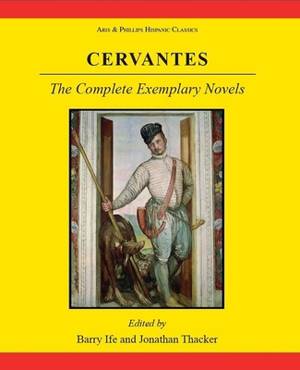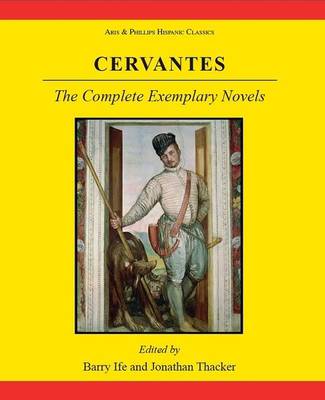
- Afhalen na 1 uur in een winkel met voorraad
- Gratis thuislevering in België vanaf € 30
- Ruim aanbod met 7 miljoen producten
- Afhalen na 1 uur in een winkel met voorraad
- Gratis thuislevering in België vanaf € 30
- Ruim aanbod met 7 miljoen producten
Omschrijving
Miguel de Cervantes is probably the greatest writer of the Spanish Golden Age, whose influence on the Spanish language has been profound. Readers who know Cervantes only as the author of Don Quijote will be surprised and delighted by what they find in the Novelas ejemplares, published in 1613 and whose composition spanned a decade and more preceding their publication. Don Quijote may be the most celebrated novel in western literature, but the Novelas ejemplares are among its most unjustly neglected masterpieces. They consist of twelve long short stories or short novels, each quite unlike the others. The geographical contrast alone could not be sharper, with settings ranging from the Aegean to the Caribbean and from Britain to North Africa. The stories teem with characters drawn from an equally broad social spectrum, from the new, affluent nobility to self-made merchants, feisty women, confidence tricksters, criminals and excluded minorities. Scarcely a contemporary conflict goes unreferenced, scarcely an important European town or city goes unvisited, while many, especially in Spain, play a major role in the economic, social and political context of the stories. Furthermore none of the major fictional genres of Cervantes's time is missing from the rich mix of literary allusion designed to appeal to a well-read, metropolitan audience.
The Novelas ejemplares are a narrative tour de force, an exhibition of sophisticated story-telling, daringly original in concept, executed with subtlety and imagination, wide-ranging, entertaining and amusing, to be read for pleasure as well as profit. Taken together, they provide an overview of many of Cervantes's recurring themes- the complexity of human nature and the unpredictability of human behaviour. They provide a series of working models of what happens when people are put under extreme pressure, all viewed from Cervantes's typically ironic standpoint.
A modern English translation was not available until the original appearance of the versions that follow, in four volumes, in 1992. Now for the first time all twelve stories are collected in one volume. For the second fully updated edition Barry Ife's authoritative General Introduction has been re-written and more of the important original preliminaries have been edited and translated so that the reader has a greater sense of the context of the 1613 publication. Specifically these are the four aprobaciones the work received and Cervantes's dedication to the Count of Lemos, both translated into English for the first time.
Specificaties
Betrokkenen
- Auteur(s):
- Uitgeverij:
Inhoud
- Aantal bladzijden:
- 960
- Taal:
- Engels
- Reeks:
Eigenschappen
- Productcode (EAN):
- 9780856687693
- Verschijningsdatum:
- 18/11/2013
- Uitvoering:
- Hardcover
- Formaat:
- Genaaid
- Afmetingen:
- 180 mm x 211 mm
- Gewicht:
- 1224 g

Alleen bij Standaard Boekhandel
Beoordelingen
We publiceren alleen reviews die voldoen aan de voorwaarden voor reviews. Bekijk onze voorwaarden voor reviews.









